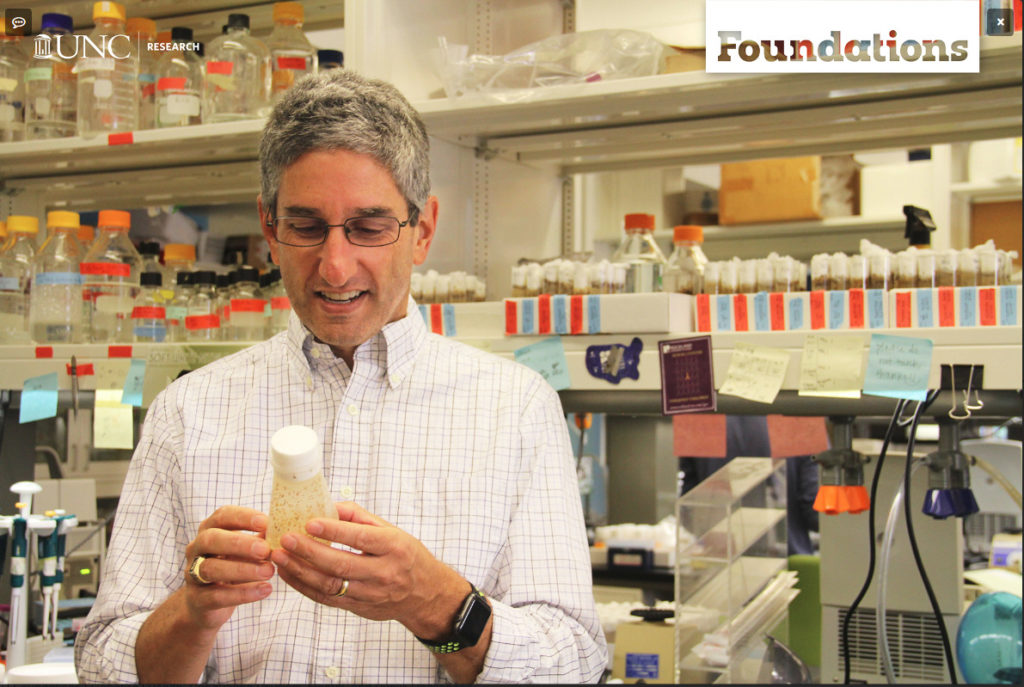Two UNC researchers who lost friends to cancer are working on a promising new drug that could eliminate some of the painful side effects of chemotherapy for future patients.
The pre-clinical findings developed by chemist Matthew R. Redinbo and his graduate student Bret Wallace, the paper’s first author, are published in the journal Science. Their research relates to the drug CPT-11, or Irinotecan, a chemotherapeutic agent used against colon cancer and other solid malignancies. It is believed to be the first successful targeting of an enzyme in symbiotic bacteria found in the digestive system.
While it has proven a valuable tool for attacking tumors, CPT-11 can also cause severe diarrhea, which limits the dosage that patients can tolerate, curbing the drug’s potential effectiveness.
The team led by Wallace and Redinbo has discovered it is possible to target and block the enzyme which is thought to play a major role in the gastric side effects.
Redinbo was motivated to tackle the problem of curbing CPT-11’s side effects after seeing the treatment’s debilitating impact on a colleague, Lisa Benkowski, who contracted colon cancer and died in 2003.
For a long time, he did not share this with the members of his research team because he did not want to risk putting undue pressure on them. But as their work progressed, he told them. That’s when he learned that Wallace had exactly the same experience: a family friend, Stacey Micoli, was diagnosed with cancer in 2006, treated with the same drug, suffered the same way and died last year.
Both women are cited in the study’s acknowledgements section.
“It’s remarkable to me that we both had personal reasons to find a way to improve CPT-11 tolerance,” Redinbo said.
“This paper is a testament to the fact that as scientists, our experiences can have a profound effect on our work, and that those experiences can translate from life, through the laboratory and — hopefully, in cases such as this — into patient clinics.”




